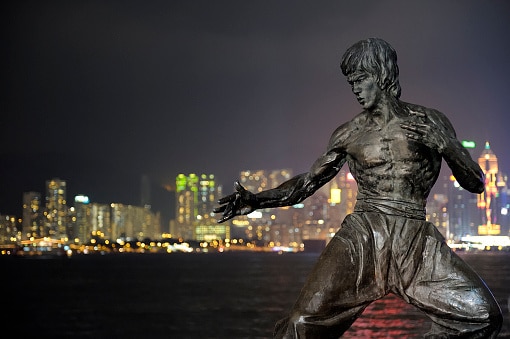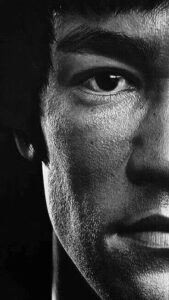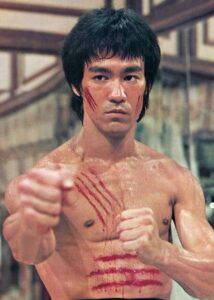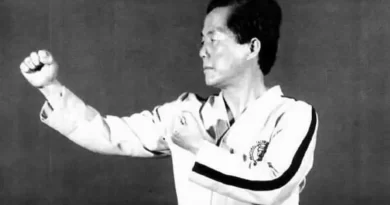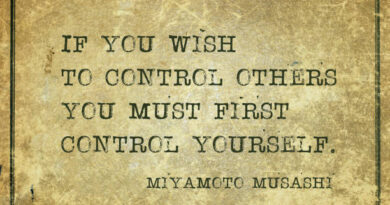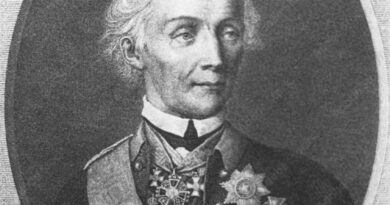What was the secret behind Bruce Lee incredible success?
Table of Contents
-
- Introduction
- Comparing Bruce Lee’s Movies and Their Impact on Martial Arts Films
- Investigating Bruce Lee’s Legacy and Its Impact on Modern Martial Arts
- Analyzing Bruce Lee’s Training Regimen and Its Effect on His Success
- Examining Bruce Lee’s Philosophy and Its Influence on His Work
- Exploring Bruce Lee’s Impact on Martial Arts and Pop Culture
- Conclusion
“Be like water, my friend – Bruce Lee”
Introduction
Bruce Lee was a legendary martial artist, actor, philosopher, and filmmaker. He is widely considered to be one of the most influential martial artists of all time and his impact on the world of martial arts and cinema is still felt today. Lee was born in San Francisco in 1940 and moved to Hong Kong at the age of 18. He quickly became a star in the Hong Kong film industry, appearing in over 20 films. He is best known for his roles in the films The Big Boss, Fist of Fury, and Enter the Dragon. Lee was also a master of martial arts, having developed his own style of Jeet Kune Do. He was a pioneer in the field of mixed martial arts and his philosophy of self-expression through martial arts has been adopted by many martial artists around the world. Lee’s legacy lives on through his films, books, and teachings.
Comparing Bruce Lee’s Movies and Their Impact on Martial Arts Films
The martial arts films of Bruce Lee have had an immense impact on the genre, and his influence can still be felt today. Lee was a master of martial arts, and his films showcased his incredible skill and athleticism. He was also a master of storytelling, and his films were filled with action, drama, and humor.
Lee’s films were revolutionary in their time, and they helped to popularize martial arts films in the West. His films were filled with intense fight scenes, and he was able to convey a sense of realism and intensity that had not been seen before. His films also featured innovative camera techniques and editing, which helped to create a unique visual style.
Lee’s films also had a profound impact on the martial arts genre. His films featured a variety of martial arts styles, and he was able to showcase the beauty and power of each style. He also popularized the idea of the “heroic” martial artist, and his films often featured characters who were able to overcome great odds and defeat powerful opponents.
Lee’s films also helped to popularize the idea of the “martial arts master,” and his films often featured characters who were wise and powerful martial artists. This helped to create a new archetype for martial arts films, and it has been a major influence on the genre ever since.
In conclusion, Bruce Lee’s films have had a lasting impact on the martial arts genre. His films were revolutionary in their time, and they helped to popularize martial arts films in the West. His films featured innovative camera techniques and editing, and they showcased a variety of martial arts styles. His films also helped to popularize the idea of the “heroic” martial artist and the “martial arts master,” and these ideas have been major influences on the genre ever since.
Investigating Bruce Lee’s Legacy and Its Impact on Modern Martial Arts
Bruce Lee is widely regarded as one of the most influential martial artists of all time. His legacy has had a profound impact on the development of modern martial arts, and his influence can be seen in many aspects of the martial arts world today.
Lee was born in San Francisco in 1940 and raised in Hong Kong. He began studying martial arts at the age of 13, and by the time he was 18, he had become a master of the Wing Chun style of kung fu. He later developed his own style of martial arts, which he called Jeet Kune Do. This style combined elements of Wing Chun, boxing, fencing, and other martial arts.
Lee’s influence on modern martial arts can be seen in the popularity of mixed martial arts (MMA). MMA is a full-contact combat sport that combines elements of various martial arts, including boxing, wrestling, judo, and karate. Many of the techniques used in MMA were developed by Lee, and his influence can be seen in the way fighters move and fight.
Lee’s influence can also be seen in the way martial arts are taught today. Many martial arts schools now focus on teaching students how to defend themselves in real-world situations, rather than just teaching them how to perform flashy moves. This is a direct result of Lee’s teachings, which emphasized practicality and efficiency over showmanship.
Finally, Lee’s influence can be seen in the way martial arts are portrayed in popular culture. Movies such as Enter the Dragon and The Matrix have helped to popularize martial arts and make them more accessible to the general public. Lee’s influence can be seen in the way these movies portray martial arts, as well as in the way martial arts are depicted in video games and other forms of media.
Bruce Lee’s legacy has had a profound impact on the development of modern martial arts. His influence can be seen in the popularity of mixed martial arts, the way martial arts are taught, and the way they are portrayed in popular culture. Lee’s legacy will continue to shape the martial arts world for years to come.
Analyzing Bruce Lee’s Training Regimen and Its Effect on His Success
Bruce Lee is widely regarded as one of the most influential martial artists of all time. His success was largely due to his rigorous training regimen, which he developed over the course of his career. This article will explore the components of Bruce Lee’s training regimen and how it contributed to his success.
Lee’s training regimen was based on the principles of Jeet Kune Do, a martial art he developed. He believed that the best way to become a successful martial artist was to focus on the fundamentals of martial arts, such as balance, coordination, and speed. He also believed in the importance of physical conditioning, which he achieved through a combination of weight training, stretching, and aerobic exercise.
Lee also incorporated a variety of martial arts techniques into his training. He studied a variety of martial arts styles, including Wing Chun, Judo, and Karate. He also studied boxing and fencing, which he believed were important for developing speed and agility. He also incorporated elements of Chinese martial arts, such as Tai Chi and Qigong, into his training.
Lee also believed in the importance of mental training. He studied philosophy and psychology, which he believed were essential for developing a strong mental focus. He also practiced meditation and visualization techniques, which he believed were important for developing mental clarity and focus.
Finally, Lee believed in the importance of self-discipline. He was a firm believer in the power of hard work and dedication, and he was known for his strict adherence to his training regimen. He believed that the only way to achieve success was to push oneself to the limit and never give up.
In conclusion, Bruce Lee’s training regimen was an essential component of his success. His focus on the fundamentals of martial arts, physical conditioning, martial arts techniques, mental training, and self-discipline enabled him to become one of the most successful martial artists of all time.
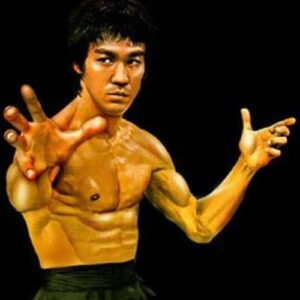
Examining Bruce Lee’s Philosophy and Its Influence on His Work
Bruce Lee was a legendary martial artist, actor, and philosopher who left an indelible mark on the world. His philosophy, which he called “Jeet Kune Do,” was a unique blend of Eastern and Western philosophies that emphasized the importance of being “like water.” This philosophy was the driving force behind his work and had a profound influence on his life and career.
Lee believed that the best way to achieve success was to be flexible and adaptable, like water. He argued that one should be open to new ideas and be willing to change and evolve in order to reach their goals. He also believed that one should be able to “flow” with the changes in life and not be rigid or stuck in one’s ways. This philosophy was reflected in his martial arts style, which was characterized by its fluidity and adaptability.
Lee’s philosophy also influenced his approach to acting. He believed that the best way to portray a character was to be in tune with the character’s emotions and to be able to “flow” with the character’s movements. This approach allowed him to create some of the most iconic and memorable characters in film history.
Lee’s philosophy also had an impact on his personal life. He believed that one should strive to be the best version of themselves and to live life to the fullest. He was an advocate for physical and mental health, and he encouraged others to take care of their bodies and minds.
Bruce Lee’s philosophy was a unique blend of Eastern and Western philosophies that had a profound influence on his work and life. His philosophy of being “like water” was reflected in his martial arts style, his approach to acting, and his personal life. His philosophy continues to inspire people around the world to be flexible, adaptable, and to strive to be the best version of themselves.
Exploring Bruce Lee’s Impact on Martial Arts and Pop Culture
Bruce Lee is one of the most iconic figures in martial arts and pop culture. His influence on both fields is undeniable and his legacy continues to live on today.
Lee was born in San Francisco in 1940 and raised in Hong Kong. He began studying martial arts at the age of 13, and by the time he was 18, he had become a master of the Chinese martial art of Wing Chun. He then went on to develop his own style of martial arts, Jeet Kune Do, which combined elements of Wing Chun, boxing, fencing, and other martial arts.
Lee’s martial arts skills and charisma made him a star in the martial arts world. He starred in several martial arts films, including The Big Boss, Fist of Fury, and Enter the Dragon. These films were hugely popular and helped to popularize martial arts in the West.
Lee’s influence extended beyond martial arts. He was a philosopher and a teacher, and his teachings have been studied by millions of people around the world. He was also an advocate for physical fitness and healthy living, and his teachings have inspired many to pursue a healthier lifestyle.
Lee’s influence on pop culture is also undeniable. He has been featured in countless films, television shows, video games, and other media. His image has been used in advertising campaigns, and his name is still synonymous with martial arts and pop culture.
Bruce Lee’s impact on martial arts and pop culture is undeniable. His influence has been felt around the world, and his legacy continues to live on today. He is an inspiration to millions of people, and his teachings and philosophy will continue to inspire generations to come.
Conclusion
In conclusion, Bruce Lee was an iconic martial artist, actor, and philosopher who left an indelible mark on the world. His influence on martial arts, film, and popular culture is still felt today. He was a master of his craft and a true innovator who pushed the boundaries of what was possible. His legacy will live on for generations to come.
